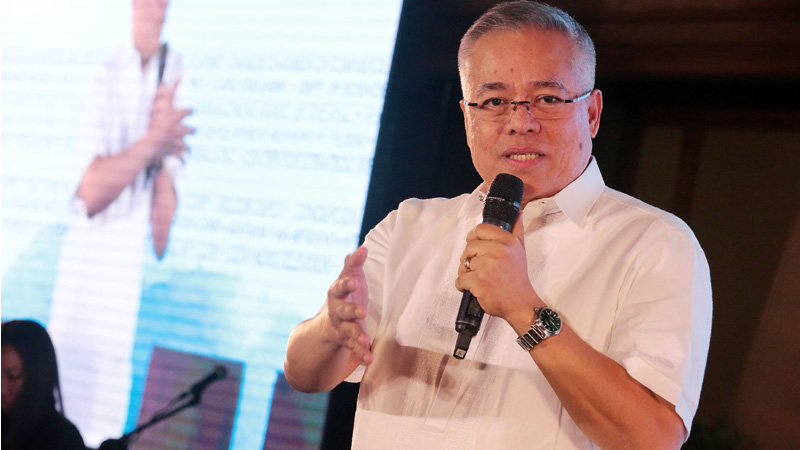
Trade and Industry Secretary Ramon Lopez. (File photo by GRIG C. MONTEGRANDE / Philippine Daily Inquirer)
The Department of Trade and Industry (DTI) is pushing for the opening of more business establishments in areas under general community quarantine (GCQ), but wants to require the private sector to pay for the mass testing of its employees.
Trade and Industry Secretary Ramon Lopez said on Tuesday that he would recommend that more businesses be allowed to open in low risk and moderate risk areas under GCQ. He said they would send the list to the Inter-Agency Task Force on Emerging Infectious Diseases (IATF-EID) today.
Lopez said public events like concerts and other forms of entertainment would still not be allowed. Food establishments are still not allowed to do dine-in.
While no extensive list of these businesses has been made public yet, Lopez said it would include all other kinds of manufacturing activities, clothing and accessories stores, barber shops, salons and professional services.
However, these would have to follow strict guidelines such as social distancing and frequent disinfection.
Lopez, who worked in the private sector for more than two decades before joining the Duterte administration, said that mass testing would soon be a common practice among companies during the health crisis.
“The government won’t answer for it because that will be the practice of companies who want to make sure [that their employees are safe from the disease],” he said.
In a separate viber message to reporters, Lopez said mass testing would be required under the new health protocol, although he did not answer questions regarding the penalties companies might face if they do not shoulder these costs.
This is separate from the mass testing initiative being spearheaded by Lopez’s former boss in food and beverage firm RFM Corp., Joey Concepcion, who is also the presidential adviser for entrepreneurship.
Called Project Ark, the initiative will have the members of the private sector procure COVID-19 test kits for their employers. This initiative, however, is on a voluntary basis, wherein companies with the financial capacity to procure the kits will be able to join.
So far, the project has reportedly ordered nearly a million rapid test kits, which would still need confirmatory tests since the rapid test kits risk false positives and false negatives.
Nevertheless, it remains to be seen if all companies would be able to pay for the test kits under DTI’s proposal, especially since testing should be done on a regular basis, not to mention the fact that many small businesses are knocking on the government’s doors for financial aid.
New health guidelines were supposed take effect in areas under Enhanced Community Quarantine starting April 27, as previously announced by Harry Roque, presidential spokesperson. The DTI was tasked to do the guidelines governing employers.
Roque, who is also now the spokesperson of the IATF-EID, said that the guidelines were supposed to be finished by April 25. However, as of Tuesday, only snippets of the guidelines were released to the media through brief interviews. INQ

